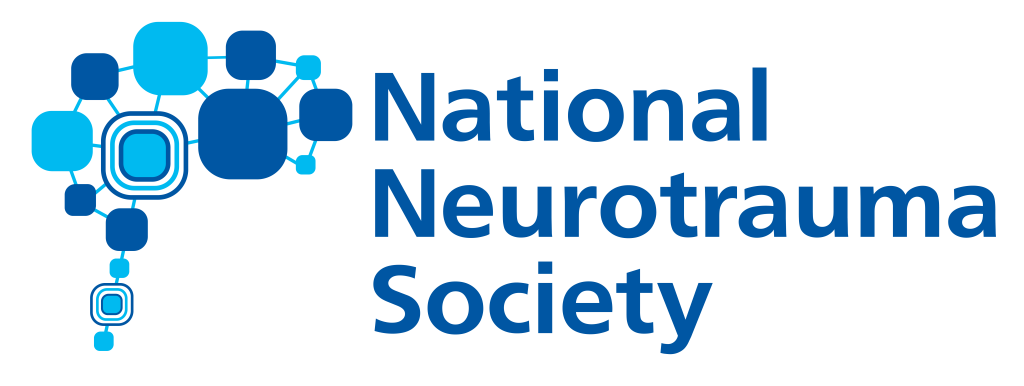AWARDS & GRANTS
Awards & Grants > Society Awards > Mary Ann Liebert Inc. Award for Science

MARY ANN LIEBERT INC. AWARD FOR SCIENCE
The Mary Ann Liebert Inc. Award for Science is the former Rosalind Franklin Award, which was renamed in 2025. This career achievement award is sponsored by Mary Ann Liebert Inc. Publishers and aims to recognize a female researcher that has made a notable scientific contribution in the field of neurotrauma and has made recent impactful contributions to education, mentoring or advocacy. Application for this award may be submitted by an NNS member applying for themselves or nominating another member.
Award & Recognition
$2,500.00 and engraved art glass trophy presented at the annual Symposium.
The winner is invited to deliver an oral presentation describing their career path and research at the 2026 NNS Symposium. A registration fee waiver will be provided.
Application Dates
Application Opens: Applications opening soon!
Application Ends: January 12, 2026
Eligibility
Female NNS members may apply for themselves or nominate another eligible female member.
How To Apply
1. Curriculum Vitae from the applicant (including email, and contact information).
2. 500-word response from applicant: Describe the impact of your research on the neurotrauma field.
3. 500-word response from applicant: Describe your educational efforts and how they have influenced the neurotrauma field.
- May include mentoring, dissemination of neurotrauma knowledge and outreach activities.
4. 500-word response from applicant: Describe your contributions to the mission of NNS beyond research and educational activities.
- NNS Mission: The National Neurotrauma Society is committed to the promotion of neurotrauma research by enhancing communications, providing a forum, and increasing support on the national and international level. The National Neurotrauma Society seeks to accelerate research that will provide answers for clinicians and ultimately improve the treatments available to patients. The National Neurotrauma Society will continue to promote excellence in the field by providing opportunities for scientists, establishing standards in both basic and clinical research, encouraging and supporting research, and promoting liaisons with other organizations that influence the care and cure of neurotrauma victims.
- Examples include, but are not limited to public relations, advocacy, and policy efforts.
5. A copy of a publication representative of body of research.
6. Optional, but highly encouraged, a letter of support from a trainee/mentee.
7. Optional, but highly encouraged, a letter of support from a mentor or colleague.
NNS recognizes that impact includes, but is not limited to, journal metrics, citations, media coverage, advancement in clinical practice, advancement in scientific techniques, etc. Applicants are encouraged to use these categories as a guide when discussing impact, but they should also feel supported to highlight research impact in their own words and emphasize additional, relevant categories of impact.
Maximum letter length is 2 pages and should follow NIH formatting guidelines.
Previous Award Recipients

Ava M. Puccio, RN, PhD
Ava M. Puccio, RN, PhD, is an Associate Professor and Co-Director of the Neurotrauma Clinical Trials Center in the Department of Neurosurgery at the University of Pittsburgh.
Dr. Puccio received her Bachelor of Science in Neuroscience and Nursing as well as her doctoral degree from the University of Pittsburgh. Her dissertation examined focusing on brain oxygenation and oxidative stress biomarkers. She has continued this translational work in the severe traumatic brain injury (TBI) population having an instrumental role in the current Phase 3 clinical trial, ‘Brain Oxygenation Optimization in Severe TBI Phase 3 (BOOST3)’ study, comparing intracranial pressure (ICP) monitoring only to ICP and brain oxygenation therapies. She was the recipient of a K99/R00 award from the NIH exploring the genetic underpinnings of secondary injury. She has over 25+ years of clinical trial design, involvement and management, with several completed and ongoing traumatic brain and spine injury research studies.
As an early adopter of team science, Dr. Puccio has been involved in the Transforming Research and Clinical Knowledge in TBI (TRACK-TBI) network since its inception and is the PI of the biorepository. She is also instrumental in multiple collaborative initiatives in biomarker exploration and validation within TRACK-TBI, BioBOOST, BioHOBIT and others. Dr. Puccio’s specialized areas of interest are focused on improving outcomes in traumatic brain injury and spinal cord injury patients, with clinical venues of controlled normothermia, mechanisms of brain oxygenation and exploring biomarker and genetic expression.
Dr. Puccio values training the next generation of scientists. Her previous mentees include undergraduates, medical students, residents, clinical fellow and academic postdoctoral students. Dr. Puccio has leadership positions in TRACK-TBI, Neurocritical Care Society and is a reviewer for the NIH, Department of Defense and several foundations. She is involved in many working groups including the NINDS Common Data Element (CDE) Working Group TBI.

Carrie Esopenko, PhD
Dr. Carrie Esopenko is an Associate Professor in the Department of Rehabilitation and Human Performance at the Icahn School of Medicine at Mount Sinai in New York City. She is also adjunct faculty at the Traumatic Brain Injury and Concussion Center in the Department of Neurology at the University of Utah and in the Department of Family Medicine and Community Health at Rutgers – Robert Wood Johnson Medical School. She is the principal investigator of a National Institute of Neurological Disorders and Stroke R01-funded study examining the effects of IPV-related head trauma. She also leads the Enhancing NeuroImaging Genetics through Meta-Analysis (ENIGMA) Intimate Partner Violence (IPV) Working Group, a global collaboration seeking to examine the effects of IPV-related brain injury, and is the co-founder and co-lead of the ENIGMA Global Knowledge Exchange Network, with a mission to provide a safe space for service providers to share their lived experiences and knowledge to help urgently accelerate the global education, support, clinical care, and knowledge translation for IPV-related brain injury (IPV-BI). Dr. Esopenko is also the lead organizer of the ENIGMA IPV and Pink Concussions IPV-BI annual conference, which brings together service providers and researchers to improve access to care and knowledge of the effects of IPV-BI. She is also a co-PI for Rutgers University’s involvement in the Ivy League/Big Ten Epidemiology of Concussion Study and is a Big Ten PI on the Study Advisory Committee.

Bridgette Semple, PhD
A/Prof. Semple has an established national and international reputation for excellence in neurotrauma research. Based on the Department of Neuroscience at Monash University’s School of Translational Medicine, she led the productive Paediatric Neurotrauma Group between 2018 and 2024, before scaling back the experimental work to allow for other activities. Her research program has focused on the fundamental neurobiology of traumatic brain injuries across the lifespan.
A/Prof. Semple has received substantial competitive fellowship and grant funding, totalling <$4.5M, from the NHMRC, US Department of Defense, Veski, American Australian Association, Rebecca L Cooper Medical Research Foundation, Monash University and Capstone Editing. She has a prolific publication track record in the fields of neurotrauma, epilepsy, social behaviour, and neuroinflammation, and she has sat on several journal editorial boards including Experimental Neurology and Neurotrauma Reports.
A/Prof. Semple has been active and engaged with the research community globally. She has served on the Executive Board for the International Neurotrauma Society, and was elected to the Council for the US National Neurotrauma Society (Vice-President-Elect 2022-23; past-Secretary, 2021-22). She was also a coordinating member of the Australasian Neurotrauma Workshop annual scientific conference and associated seminar series in 2022. In 2022, she was awarded the inaugural Mid-Career Excellence in Leadership Award from Monash University’s School of Translational Medicine Gender, Equity, Diversity and Inclusion (GEDI) committee; and in 2023, she was awarded the Rosalind Franklin Award from the US National Neurotrauma Society for excellence in research, education and mentoring.

Corina O. Bondi, RN, PhD
Dr. Corina Bondi is a tenured Associate Professor in the Departments of Physical Medicine and Rehabilitation and Neurobiology, an Associate Director at the Safar Center for Resuscitation Research and Training Faculty with the Center for Neuroscience at the University of Pittsburgh. She holds a Ph.D. in Pharmacology/Neuroscience from the University of Texas Health at San Antonio. Dr. Bondi is an Academic Editor for Brain Research, BMC Neuroscience, and the Journal of Neurotrauma. She has served as Secretary/Treasurer and Chair of Finance and Fundraising for the National Neurotrauma Society, where she currently serves as Vice President-elect (2024-2025). Dr. Bondi also serves as scientific reviewer on study sections with the National Institutes of Health, the National Science Foundation, the Department of Defense, the Department of Veterans Affairs, and the New Jersey Commission on Brain Injury Research. Her research interests focus on complex cognitive deficits and distinct neurobehavioral and neurochemical alterations relevant to psychiatric disorders after traumatic brain injury (TBI) in rodents. Her expertise of 20 years and over 70 manuscripts reflects the overlap of cognitive neuroscience, stress neurochemistry, and TBI neuropathology. She published the first papers using the digging and operant set-shifting tasks after TBI, which are akin to the Wisconsin Card Sorting Task that is used clinically in patients to assess executive function. She is a 2024 recipient of the prestigious NIH/NINDS Landis Award for Outstanding Mentorship and has mentored over 75 trainees, including students from all backgrounds at all levels of education – high school, undergraduate, graduate, post-doctoral, and residents.

Theresa Currier Thomas, PhD
Theresa Currier Thomas, PhD is the Director of the Translational Neurotrauma and Neurochemistry Laboratory at Phoenix Children’s Hospital. She was born in Kentucky and received her BS in Agricultural Biotechnology in 1999 from the University of Kentucky. She earned her PhD in Anatomy and Neurobiology in 2008 and continued as a postdoctoral fellow at the Spinal Cord and Brain Injury Research Center at the University of Kentucky.
Dr. Currier Thomas’s primary research focuses on traumatic brain injury (TBI). She studies structural, functional, and molecular processes, with synaptogenesis as a keystone, which guides circuit reorganization over time and contributes to chronic deficits/symptoms after TBI. She tests pharmacological and rehabilitative strategies to mitigate these chronic deficits. She is also actively investigating the contribution of endocrine (hormone) dysregulation after TBI to understand causes and propose treatments for post-traumatic neurological deficits. Dr. Currier Thomas has demonstrated an early commitment to including females in TBI research publishing on sex differences in neurotransmission and the sequelae of TBI pathophysiology. These studies collaborate with researchers from the University of Arizona College of Medicine–Phoenix, Phoenix, VA Healthcare System, Arizona State University, and Midwestern University. She also has a remarkable history of creating a community of diversity and inclusion through mentorship, networking, professional development, and education locally and nationally.
VIEW OTHER SOCIETY AWARDS:

RISING STAR
AWARD

DASH
PRIZE

